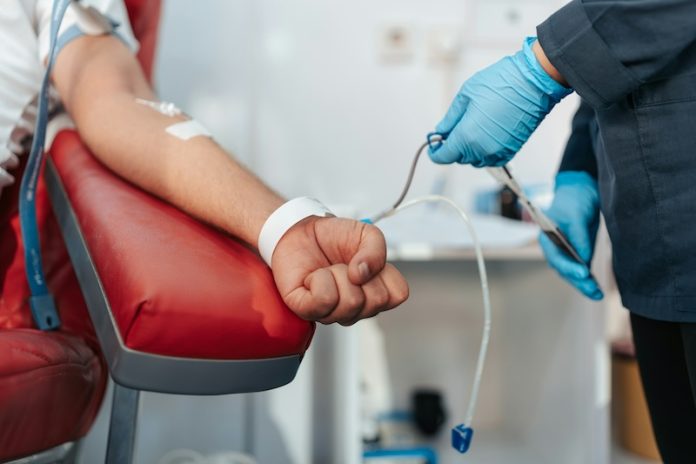
A recent discovery by researchers from Australia and the United States has uncovered a surprising connection between a rare form of rheumatoid arthritis and genetic mutations that are usually linked to blood cancer.
This form of arthritis, known as seronegative rheumatoid arthritis, behaves differently from the more common type of rheumatoid arthritis. It doesn’t show the usual markers in blood tests and often doesn’t respond well to standard treatments.
What makes this new research so important is the discovery that certain genetic mutations, typically seen in blood cancer patients, might also be playing a role in triggering this form of arthritis.
The study was a joint effort by researchers from the South Australian Health and Medical Research Institute (SAHMRI), the University of Adelaide, Royal Adelaide Hospital, Flinders University, and the Mayo Clinic in the United States. It was published in Blood, a journal by the American Society of Hematology.
The research team, led by Associate Professor Devendra Hiwase, a clinical hematologist, and Dr. Dan Thomas, head of SAHMRI’s Blood Cancer Program, were surprised to find that patients with seronegative rheumatoid arthritis often had mutations in specific genes that are typically associated with bone marrow conditions.
These conditions, like “lazy marrow” (where the bone marrow doesn’t function properly) and acute myeloid leukemia, are linked to mutations in genes such as IDH1 and IDH2.
According to Associate Professor Hiwase, the presence of these gene mutations seemed to come before the development of arthritis in many patients. This suggests that the gene mutations may play a role in triggering arthritis in these cases.
He explained, “We discovered that patients with mutations in the IDH1 or IDH2 genes, which affect the bone marrow, often developed arthritis after the mutations appeared. This makes us think that these mutations might be causing the inflammation that looks like an autoimmune disease.”
The research also found that the time between being diagnosed with a bone marrow condition and developing arthritis was shorter for patients with these specific gene mutations.
Additionally, they discovered that certain metabolites (substances produced by cancer cells) were linked to the arthritis symptoms.
This discovery has important implications for people suffering from this type of arthritis. Associate Professor Hiwase mentioned that treatments commonly used for blood cancer might also work for patients with seronegative rheumatoid arthritis.
He said, “Our findings suggest that therapies used to treat blood cancer, particularly those targeting metabolic pathways, could be helpful for treating some types of arthritis as well.”
This study is just the beginning of understanding the connection between autoimmune diseases like arthritis and blood cancer. It opens up new possibilities for treating this rare form of arthritis by targeting the gene mutations that may be contributing to the disease.
In the future, doctors may be able to use drugs aimed at these specific mutations to treat seronegative rheumatoid arthritis.
Dr. Dan Thomas also highlighted the importance of this research, emphasizing how modern technology, like digital health records and advanced tools for analyzing chemical compounds, made these findings possible.
He remarked, “This research shows the power of interdisciplinary science, combining different fields of study to discover new treatments.”
While the research is still in its early stages, it has the potential to change how doctors treat seronegative rheumatoid arthritis.
By understanding the genetic link between blood cancer and arthritis, researchers hope to develop better, more effective treatments for patients who currently have limited options.
For those interested in managing arthritis, it’s worth exploring natural options as well. Studies suggest that foods like extra virgin olive oil and pomegranate may help relieve arthritis symptoms.
Other research also points to medical cannabis as a potential treatment for reducing pain associated with arthritis and back problems.
The findings of this study are a reminder that understanding the genetic and biological factors behind diseases like arthritis could lead to breakthroughs in treatment, giving hope to patients with this challenging condition.
The full details of the research can be found in Blood, the journal of the American Society of Hematology.
If you care about cancer risk, please read studies that exercise may stop cancer in its tracks, and vitamin D can cut cancer death risk.
For more information about cancer, please see recent studies that yogurt and high-fiber diet may cut lung cancer risk, and results showing that new cancer treatment may reawaken the immune system.
Copyright © 2024 Knowridge Science Report. All rights reserved.



